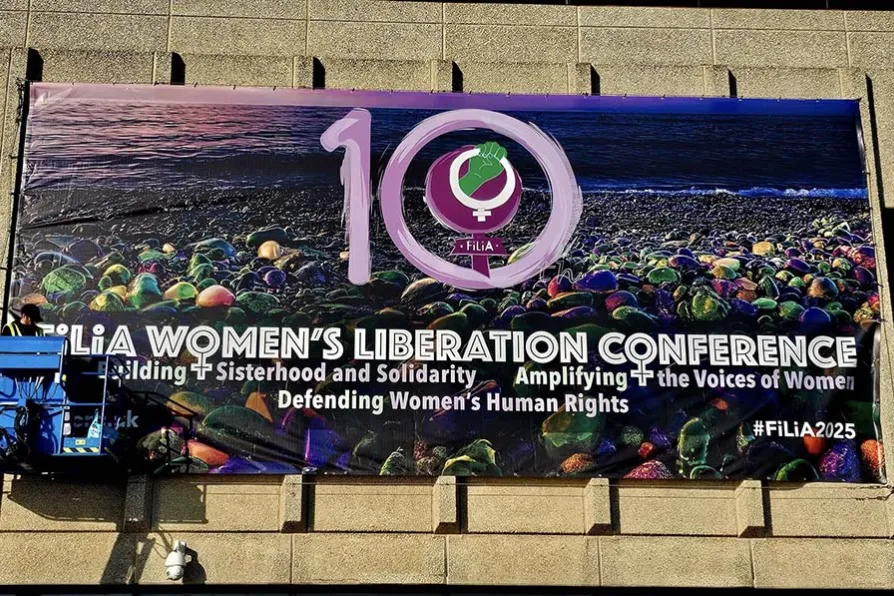
 A poster at the Filia conference in Brighton (courtesy of Filia)
A poster at the Filia conference in Brighton (courtesy of Filia)
WOMEN’S organisation Filia has concluded another successful conference — the 2,400 participants and 250 speakers affirming it as the largest grassroots feminist conference in Europe.
It proceeded despite a violent attack on the venue intended to prevent women gathering on their own terms. Many on the left rightly condemned this but silence from many others, and attempts in some quarters to relativise or excuse it, point to a double standard on the right to freedom of speech and assembly which undermines our resistance to attacks on this by the British state.
Filia debated the rise of misogyny, the spycops scandal, the exploitation of poor women through the surrogacy industry and migrant women and class. Its trade union network shows its keenness to reach out to the labour movement.
Reluctance to engage with the continent’s biggest women’s conference because of its sex-realist approach to contentious gender issues is not a tenable position in the long term, given these questions are now openly debated almost everywhere except the labour movement. It cuts unions off from an emergent combative feminism at a juncture when, representing only a fifth of British workers and with the rise of the right highlighting a cultural gulf between the unions and many working-class communities, we cannot afford a siloed or sectarian left.
Attacks on Filia’s right to organise must stop, differences with it (or more often with individual speakers it has allowed a platform) become subjects of debate not boycotts, and attempts to exclude its stalls or fringes from union events be robustly challenged.










